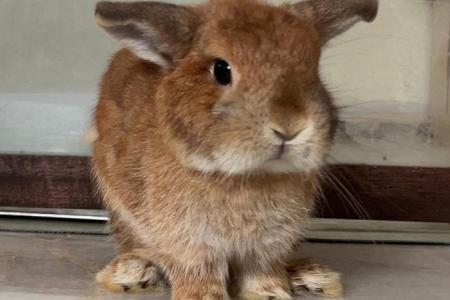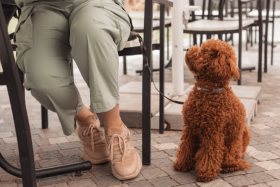Vets warn against fake pet supplements, meds sold online
With the cost of medicine and treatment in the pet sector rising, some pet owners have sought to keep a lid on expenses by turning to alternative sources online, instead of purchasing these items from clinics.
The goods include over-the-counter medication such anti-flea and mite solution Revolution, supplements such as those for skin and joint issues, and prescription diets such as those for weight management.
Checks on local e-commerce platforms such as Shopee and Lazada show that such products are being sold for significantly less than the retail prices at pet shops and vet clinics. For example, a pack of three of Revolution for cats can be found on Shopee for as low as $28, while the same product costs between $38 and $42 in pet stores here, and between $56 and $74 at veterinary clinics.
Thousands of these products have been sold according to listings, with many receiving positive reviews.
Despite possessing official-looking packaging, batch numbers and hologram stickers, some of these products turned out to be fake, leaving less than the desired outcomes.
Arina’s pet rabbit was diagnosed with scabies on its paws in mid-August 2023.
Scabies is caused by mites burrowing into skin, resulting in symptoms including intense itching as well as the formation of crusts and scabs. In severe cases, scabies can cause animals to stop eating, leading to weakness and eventually death.
After the diagnosis, Arina, who declined to reveal her full name, was told to administer Revolution on her rabbit.
Having bought the product earlier from a seller on an e-commerce platform prior to the diagnosis, Arina decided to use it instead of the one sold at the clinic.
Arina told The Straits Times that it was $15 to $20 cheaper than the one sold at the vet.
However, her rabbit’s condition did not improve. Instead, it worsened, with the scabies spreading to all four of his paws. It became lethargic and did not move much because of the pain.
Fearing for her pet’s health, Arina took the rabbit and the sample of Revolution to the clinic. When Arina revealed the source of the medicine, the vet suspected it could have been a counterfeit product.
The rabbit was treated with the genuine product dispensed by the clinic. It has since recovered, but unfortunately, lost two of its toes after they dried up and dropped off due to complications from the scabies, which was exacerbated by the ineffective “Revolution” Arina had bought online.
“Even if the listing has a lot of reviews, or if someone you know recommended it to you, please seek advice from a professional to make sure (that it is genuine), as those other buyers could be victims, too,” said Arina.
“After my rabbit almost lost his life, I no longer purchase any medication from online sources unless they are the online store of a vet or an authorised seller. I no longer trust reviews as well when it comes to medication.”
How can counterfeit products affect my pet?
Seven vet clinics that ST spoke to said they were aware of counterfeit pet products circulating in the market. Three of them had attended to cases affected by such products.
Paws N’ Claws, for instance, has seen cases resulting in vomiting and seizures.
Its head vet, Dr Esther Lam, said: “Counterfeit products can pose significant risks to pets, including adverse health effects such as allergic reactions, toxicity, and ineffective treatment of conditions.”
Amber Vet’s Dr Brian Loon added: “At worst... if these are toxic, they can be an immediate or accumulative life-threatening risk, such as severe-to-irreversible organ damage.”
Dr Mikayla Liow from Vet Central told ST that commonly counterfeited pet products are often driven by high demand and the ease of resale, particularly through online platforms.
Examples include joint care supplement Antinol and anti-parasite medications such as Revolution and Nexgard Spectra. More common long-term prescription medications, and even medicated toothpaste, have also been counterfeited.
“For instance, counterfeit Antinol does not contain the active ingredients necessary for therapeutic effects, posing significant health risks to pets,” she said.
Pet Wellness Products, an authorised distributor of several pet supplements including Antinol for Singapore and Malaysia, first encountered counterfeits sold online in 2022.
Since then, more sellers have begun offering fake Antinol via e-commerce platforms, with these products appearing to have come from Thailand and Malaysia, said a Pet Wellness Products spokesperson.
Antinol’s manufacturer Vetz Petz sought the help of the Thai authorities. This led to a raid on a warehouse containing counterfeit supplements for both humans and animals from “famous brands”.
Upon testing, the counterfeit Antinol was found to contain only coloured vegetable oil resembling the real product.
DHKS Pet Supplies, the official importer of pet food brand Royal Canin, said it has also been trying to tackle the issue of unauthorised sellers purporting to carry its products.
Among its offerings are a variety of specialised diets that target issues ranging from digestive care to kidney support, urinary health and food sensitivities, which are typically carried and sold only by licensed veterinary clinics.
“The sale of prescription diets on third-party e-commerce platforms allows pet owners to access the diets freely without an approved prescription from a vet, putting the sick pet’s life in jeopardy,” said a spokesperson for DHKS Pet Supplies.
Unauthorised sellers have also been known to repack products to circumvent import labelling requirements, while some individuals also offer and coordinate group buys of pet food from other countries, delivered either by mail or land transport.
In addition to originating from dubious sources, the counterfeits may be further compromised through the repacking process, risking the growth of pathogens within the food which, in turn, could cause animals to fall ill.
“During the repacking process, the vendors use cheap bags, which are mostly low-quality plastic. These bags are not only permeable but are also not food-grade, that is, not cleaned and not sterilised,” said DHKS Pet Supplies’ spokesperson.
The spokesperson added that cross-border imports into Singapore, even if the products bear import stickers from other countries, are illegal, as they were not brought in by importers authorised by the Animal & Veterinary Service (AVS) to do so.
According to regulations, pet food containing meat or meat products can be brought into Singapore only from sources approved by AVS.
Every consignment of pet food brought into Singapore must be accompanied by an AVS-issued import permit and supporting documents such as a health certificate endorsed by the relevant authority of the exporting country.
In response to ST’s queries, AVS said it received two cases of feedback on potential counterfeit pet foods in 2024. Both buyers had purchased their pet food from private sellers on e-commerce platforms instead of local authorised distributors.
“AVS will investigate and take action against sellers who bring in pet food containing meat or meat products without an import permit under the Animals and Birds Act,” it said. Anyone found guilty of doing so can be fined up to $10,000, jailed for up to a year, or both.
AVS is also working with e-commerce platforms to take down listings of pet food that are not supplied by local authorised distributors.
In response to ST’s queries, Shopee said sales of counterfeit products are prohibited on its platform, with sellers required to comply with local regulations and its policies on prohibited items.
“In cases when we identify listings that infringe upon local regulations or our platform policies, we take immediate action by notifying sellers, removing listings, and/or banning sellers wherever necessary,” said a Shopee spokesperson.
“We also encourage our users to report any counterfeit products via the ‘Report this Product’ option. Users can also chat with our live agents via the Shopee app, or send us an e-mail through the Help Centre.”
What should pet owners look out for?
As a precaution, pet owners should purchase products only from authorised sources and/or retailers, said all importers and vet clinics that ST spoke to.
Dr Christopher Tham from Jireh Veterinary Clinic said: “Generally, buyers need to know that all the vet clinics in Singapore buy medications directly from local suppliers, or sometimes, imported drugs from Australia Vet Pharmacy companies.
“We have clients bringing counterfeit items to us to check if they can use them. Very often, after comparing the products (packaging, pills and labels), we are able to find differences that set them apart from the genuine ones.”
Vets recommend those concerned about costs to discuss their budget and needs with them, as they may be able to suggest alternative treatment options, or otherwise guide them towards reputable suppliers if they choose not to purchase products directly from the clinic.
AVS strongly encourages pet owners to verify the authenticity of pet food before purchase, and to look for information from brand owners on how to distinguish genuine products from counterfeit ones.
For example, according to the official Antinol Singapore Instagram account, fake capsules are dark red, compared with the original’s orange shade. The genuine product is also derived from mussels, and hence, smells strongly of them, while the fake has no smell at all. The fake product is also larger in size.
If buyers doubt a product’s authenticity, they can verify the product’s lot number and expiration date with its manufacturer or distributor, said Dr Tan Eng Khim from Vet@RV. For food products, the size and colour of pellets or kibble can also be compared against those from reputable sources.
Owners looking to avoid dubious online sources can also turn to bricks-and-mortar pet stores such as Pet Lovers Centre and Pets’ Station, which procure their items only from brand owners or authorised distributors.
Get The New Paper on your phone with the free TNP app. Download from the Apple App Store or Google Play Store now


